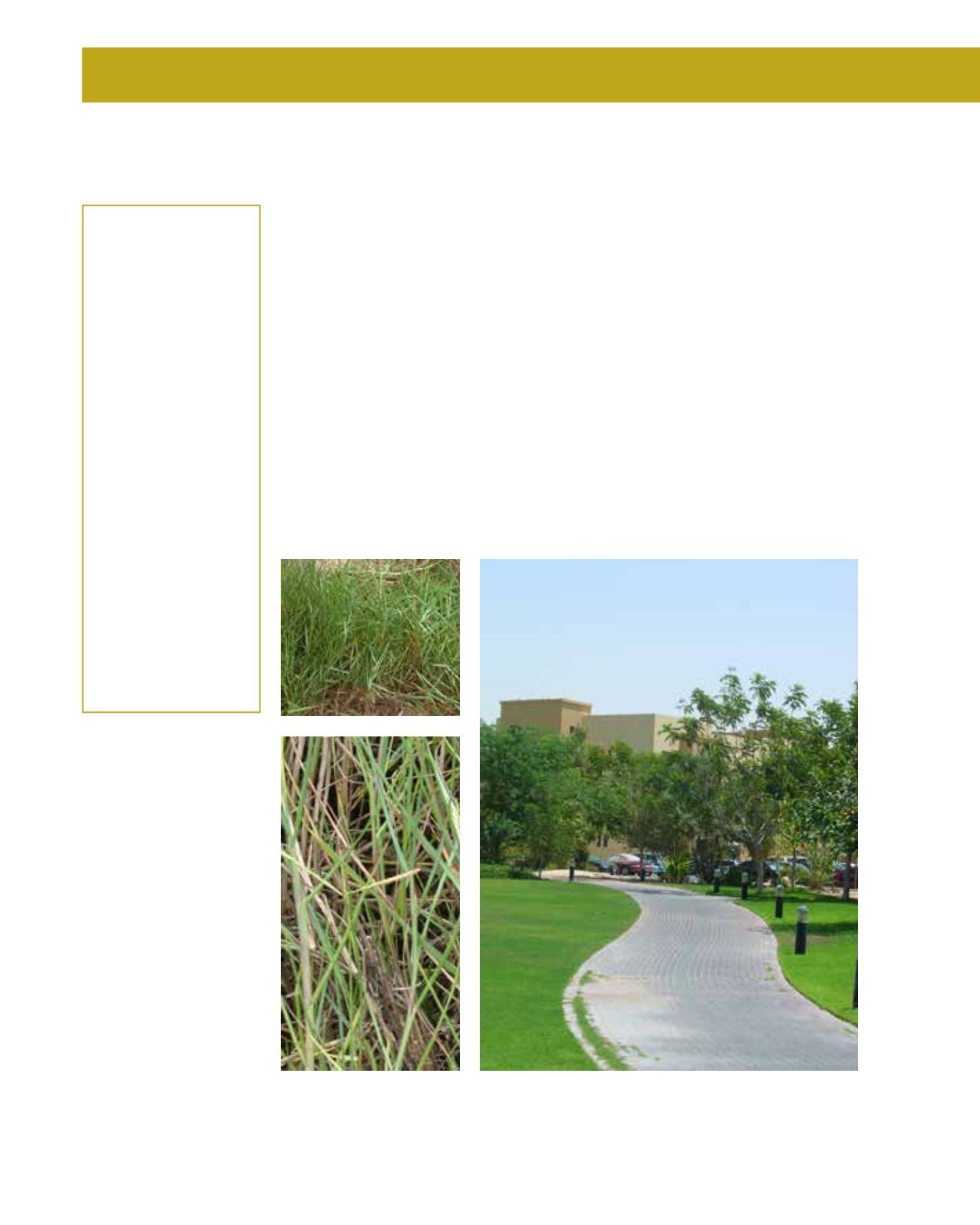

GENERAL
Origin
:
sub-tropical,
tropical
Vigour
:
fairly fast
growing
Humidity
:
semi-arid, semi-
humid, very
humid
Propagation :
layer
Maintenance :
high
CONDITIONS
Urban climate :
resistant
Dessication :
resistant
Stagnant water :
vulnerable
Irrigation
:
high
Salinity/ppm :
very high (7500
ppm)
Hardiness
:
-6°C
SHAPE
Type
:
grasses
Height
:
0.05 m-0.6 m
Spread
:
0.1 m-0.5 m
Foliage
:
evergreen
FLOWER
Colour
:
light brown
Size
:
6 cm
Period
:
April - May
FRUIT
Type of fruit :
caryopsis
Bahia Grass or Seashore Paspalum is a warm season turf grass, native to South America and
growing in tropical areas throughout the world. It is a very useful ornamental lawn grass for
Arriyadh. Spreading by rhizomes, Paspalum grows even where drainage is a problem. The leaf
blades are flat, 5 mm wide and greyish-green. It requires full sun, sandy soils and ample irrigation,
even though it has some drought tolerance. Paspalum does not produce highly viable seed, and
therefore must be propagated vegetatively by stolons, rhizomes. It has the highest salt tolerance of
all turf grasses. Regular leaching will alleviate the buildup of salts in the soil. Research has indi-
cated that saline water could be used as a selected herbicide. Paspalum will also tolerate recycled
effluent water, as opposed to Bermuda grass, which begins to suffer as salts build up. In lawns, it
has high shoot densities and is therefore more competitive against weeds than other grasses. Few
pests attack Paspalum. It requires much less nitrogen than other warm season grasses and is to-
lerant of a wide range of pH. Paspalum is shade- and drought-tolerant. It can be overseeded with
cool season grasses and mown very closely. Paspalum is a useful plant in sand dune stabilisation.
It is, however sensitive to cold temperatures, becoming dormant at 10°C. There are several varie-
ties of Paspalum vaginatum. Environmentally, Paspalum requires less water, fertiliser and pesti-
cides than other warm season turf grasses, but needs the usual maintenance procedures for lawns.
221
Paspalum vaginatum,
Poaceae
Bahia Grass,
Seashore Paspalum
















